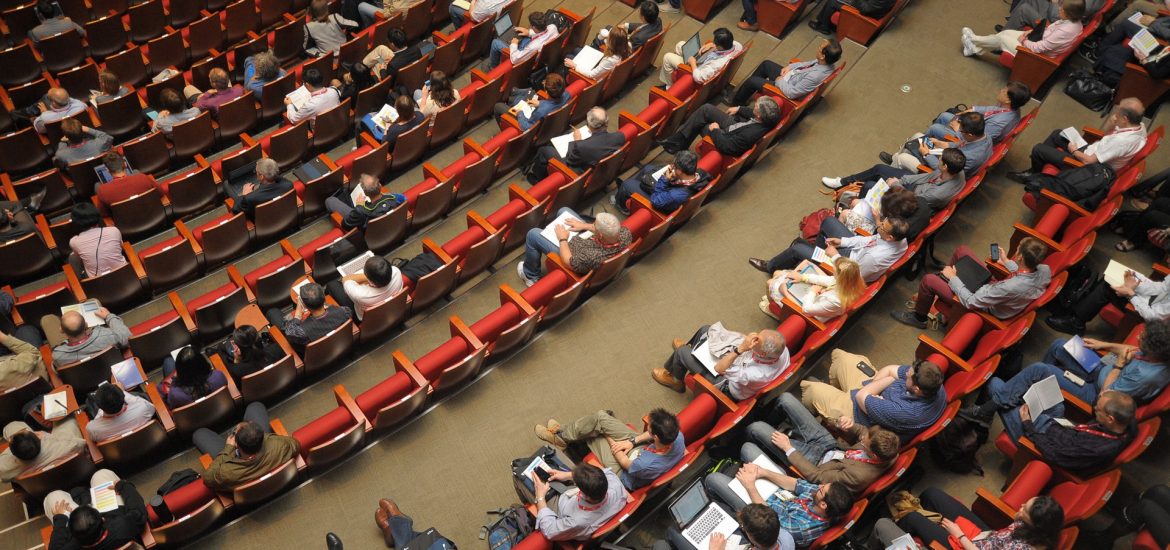Probably everyone remembers his or her first time attending a big international conference. When you are fresh to the academic community and you would like to schedule an appointment with well-known researchers in your field and build your network, but you do not know where and how to start and who can be of practical value.
Last month I had the opportunity to participate in the annual ASHE conference for the first time. ASHE stands for the Association for Studies of Higher Education and it is a well-known US-based scholarly community dedicated to higher education as a field of study. Although principally a US society, ASHE’s participants come from all over the world.
This year the conference took place in Tampa, Florida, and it gathered over 1,400 researchers, administrators and practitioners from all over the world. ‘Envisioning the “Woke” Academy’ was the conference theme, and special attention was paid to negative effects of inequitable power structures on minoritized peoples. With this theme, the conference was a reminder that the main mission of universities is enlightenment: being ‘woke’ implies that people are engaged in the process of (re)envisioning of future characterized by freedom and emancipatory struggle.
Upon registration, conference organizers supplied us with the most important things: 1) a handbook with descriptions of sessions and various events aimed at engaging with a broad community of scholars and building connections and 2) sunglasses (you really need them in sunny Florida)!
During the conference there were a myriad of opportunities for early career scholars, for example, a newcomer welcome luncheon, conversations with advanced scholars and practitioners, receptions organized by the ASHE Graduate Student Association and American universities etc.
Traditionally, the ASHE Conference has two parts: the pre-conference, which includes sessions on comparative education, and the general conference, which is mainly devoted to the U.S. higher education. This year, the Council for International Higher Education, which is one of the several ASHE councils, paid a special attention to the new methodological paths in comparative higher education and the role of scholars’ work within a true global context.
At the conference I presented the results of the research I did together with Natalia Maloshonok, my colleague at the National Research University Higher School of Economics in Moscow, about the effects of student engagement on the development of generic skills and how these skills differ across nations. I also acted as a chair of the session ‘Critical Perspectives of Study Abroad Programs for International Education’.
An interesting, and in my experience a unique opportunity, ASHE provided us with was to participate in the Mentor-Protégé Program. All protégés were paired with mentors based upon their primary scholarly and professional interests. The objective of this initiative was to contribute to the protégé and mentor’s personal and professional development. I was matched with Dr. Tiffany J. Davis who is a Clinical Assistant Professor of Higher Education & M.Ed. Program Director at the University of Houston. This is a good chance to get an additional source of expertise in your field.
The participation in the conference was very valuable. A great advantage I found in ASHE, compared to other conferences, was that all accepted research papers were reviewed by experts in the relevant field of study. For example, my paper was reviewed by the professor of the Texas Tech University Dr. Mary Bodine-Al-Sharif. She provided comments and recommendations on how the paper could be strengthen and advised on possible ways for further research.
The next ASHE Conference will be held in Portland, Oregon. The application window will be open soon and if you think this is something for you and you have a possibility to go, you should definitely consider it. There is also a chance to get a Graduate Travel Scholarship from the ASHE Graduate Student Community. While the next deadline is coming up and ASHE being rather competitive, you may want to start planning in advance about what you can share with your audience.
Overall, I found it to be a truly great conference, both for presenting my work and networking, and I look forward to going again!
Irina Shcheglova is a research fellow at the Centre of Sociology of Higher Education, Institute of Education, National Research University Higher School of Economics, Russia.
